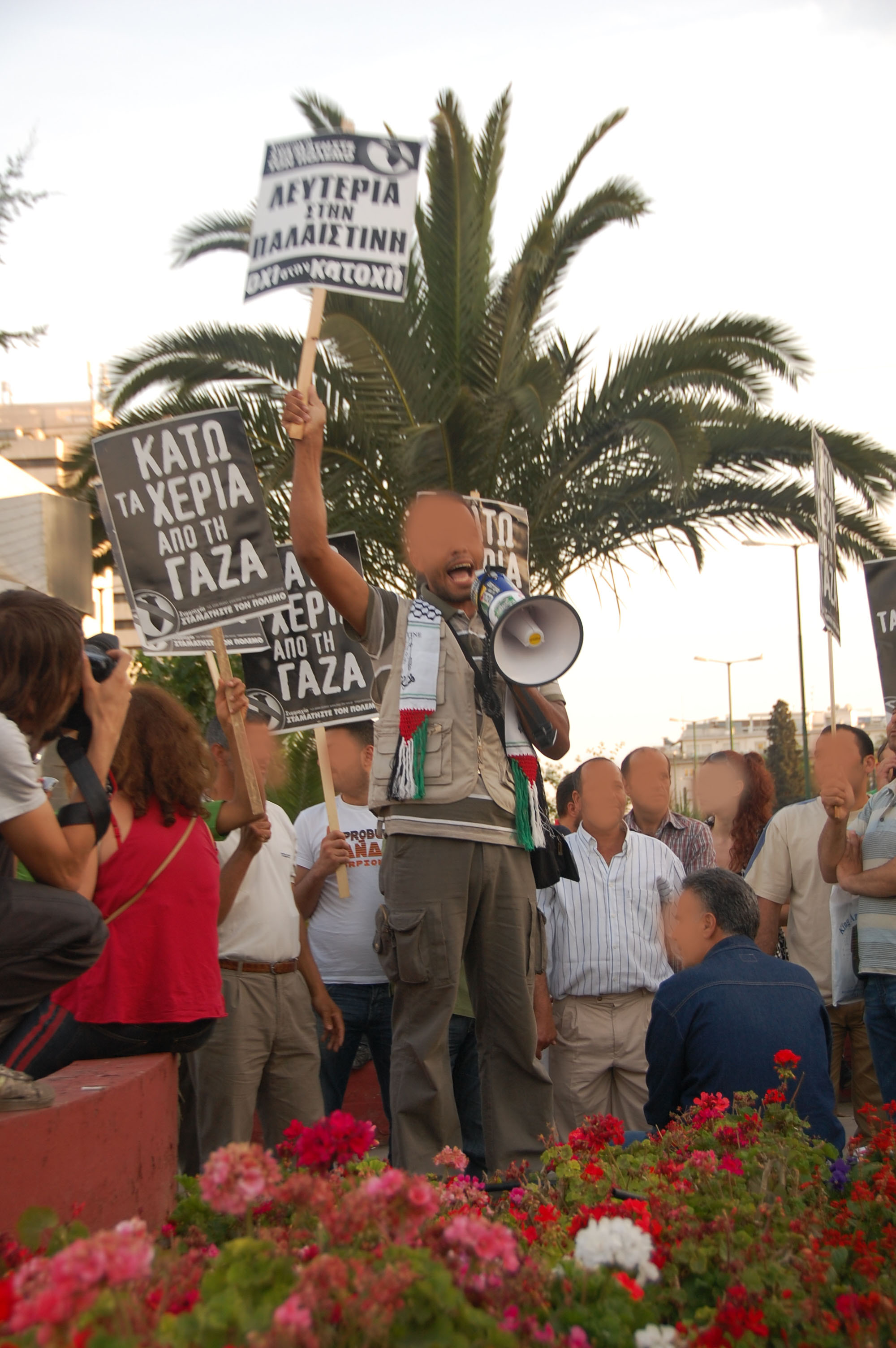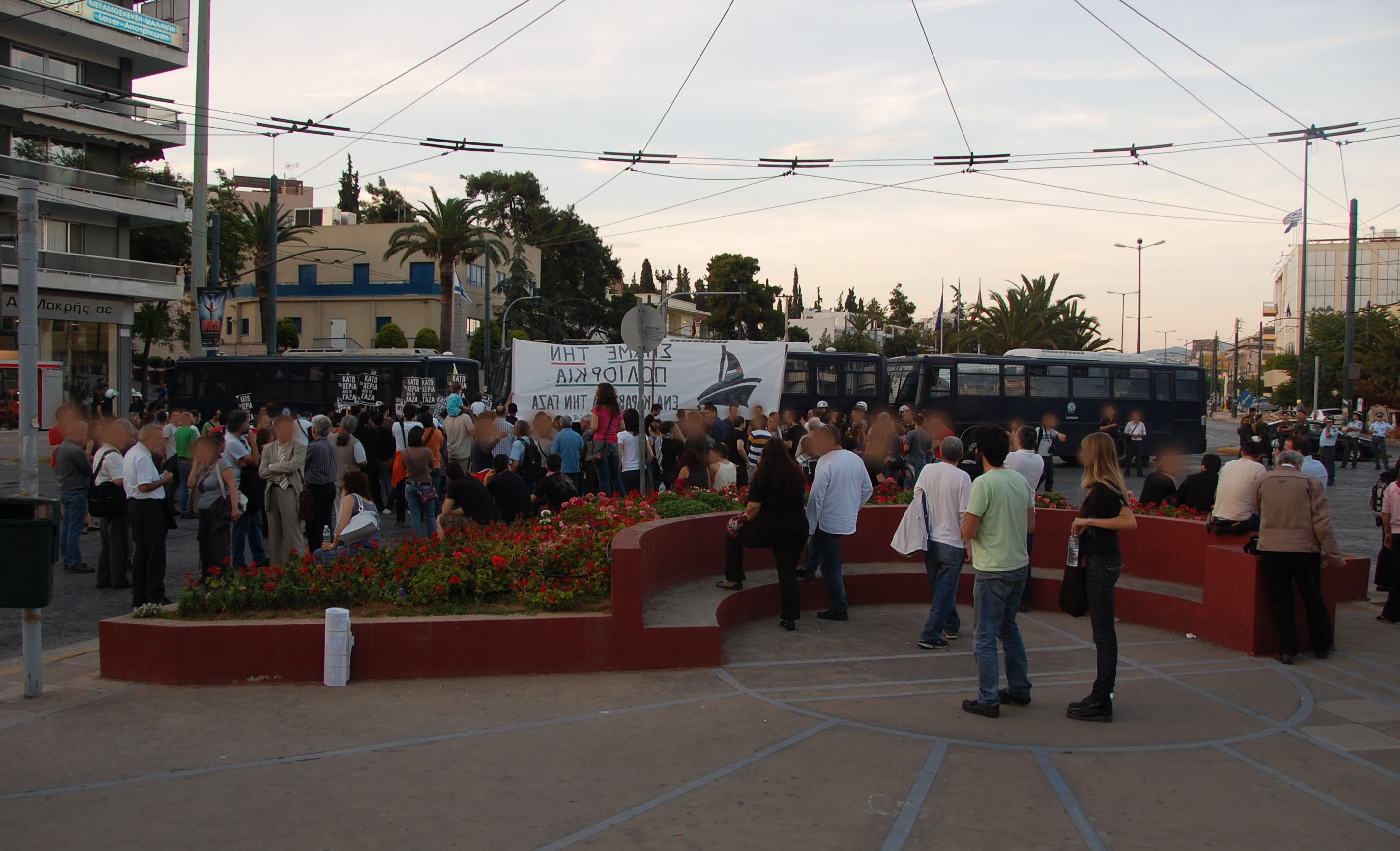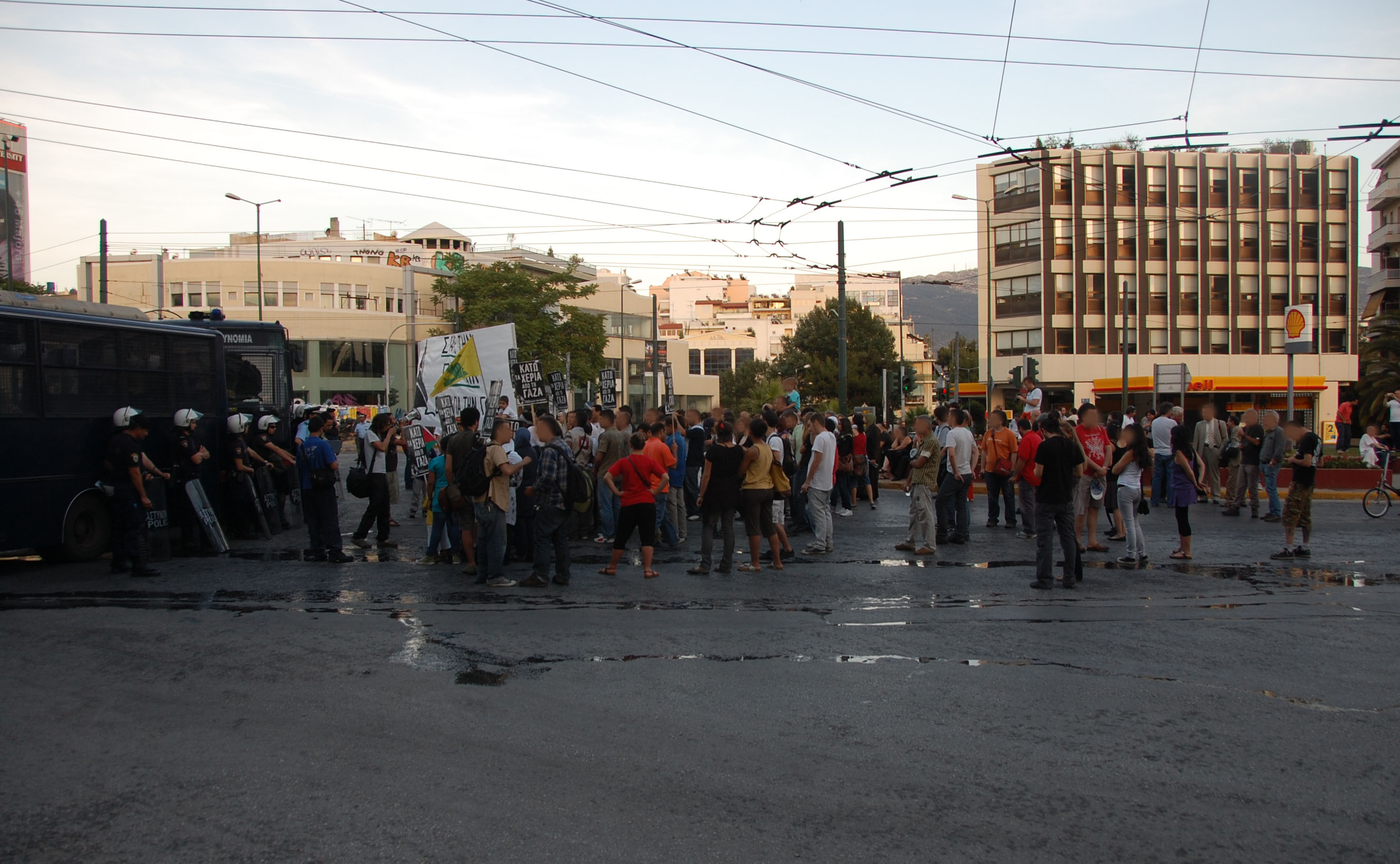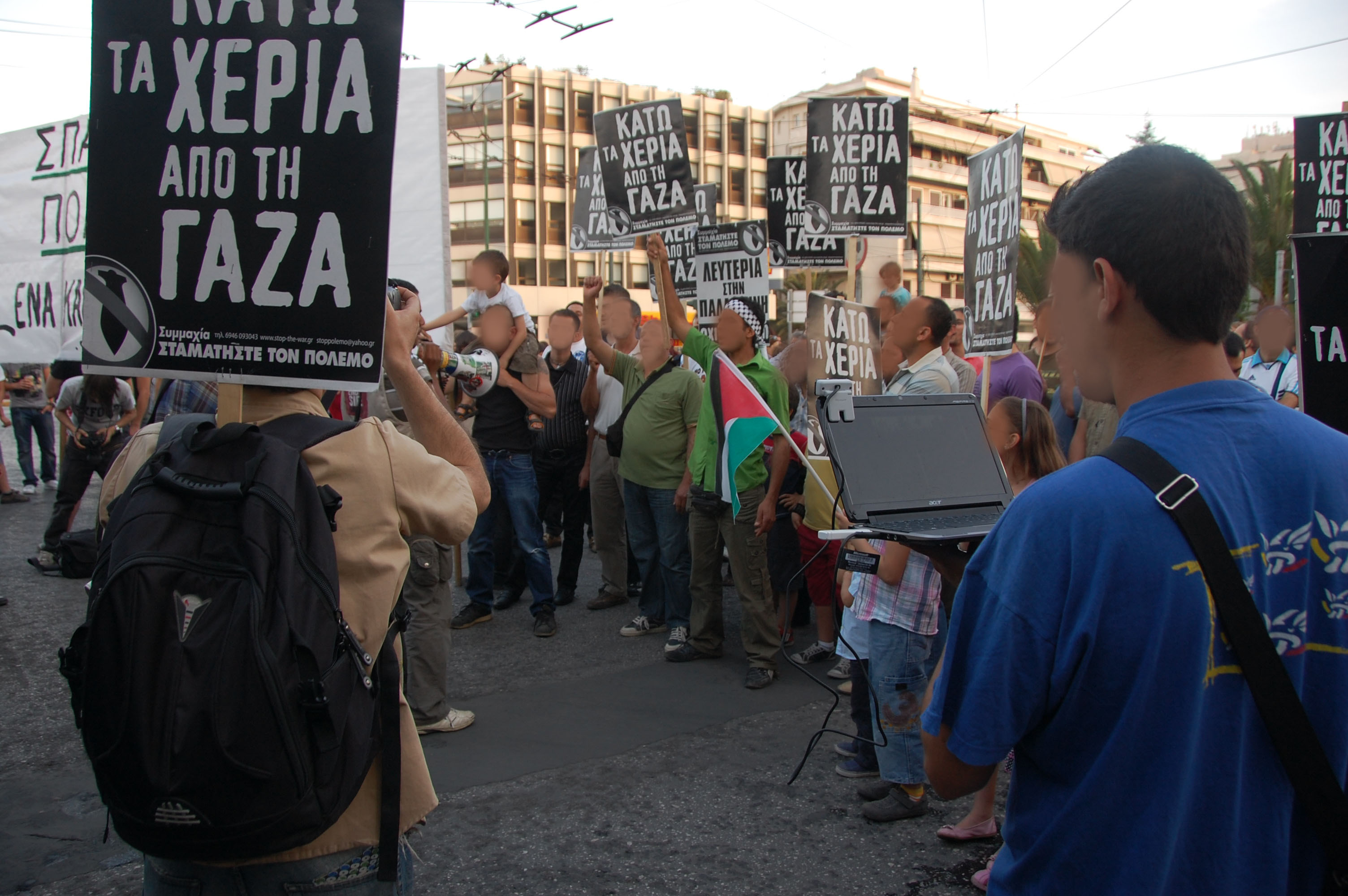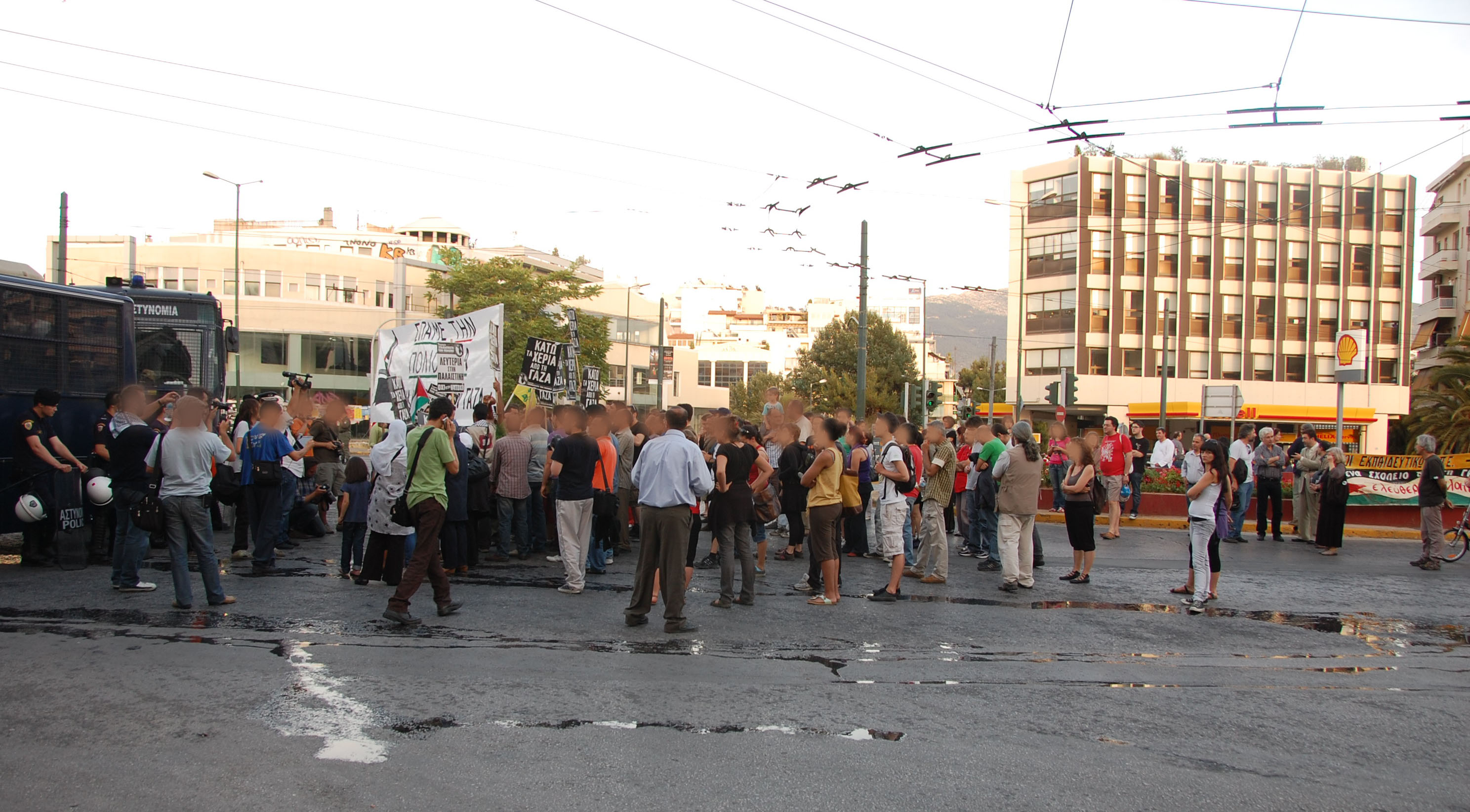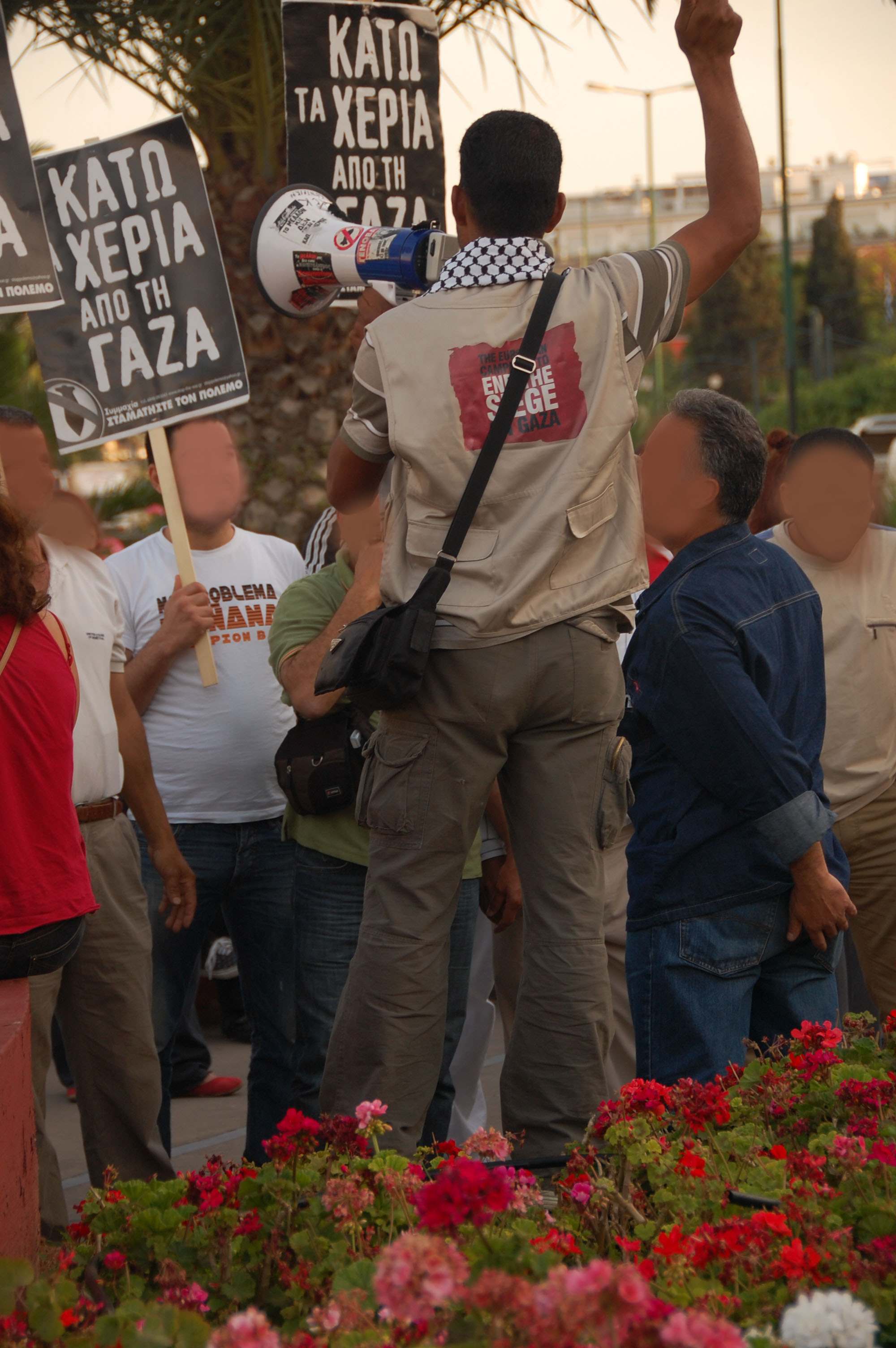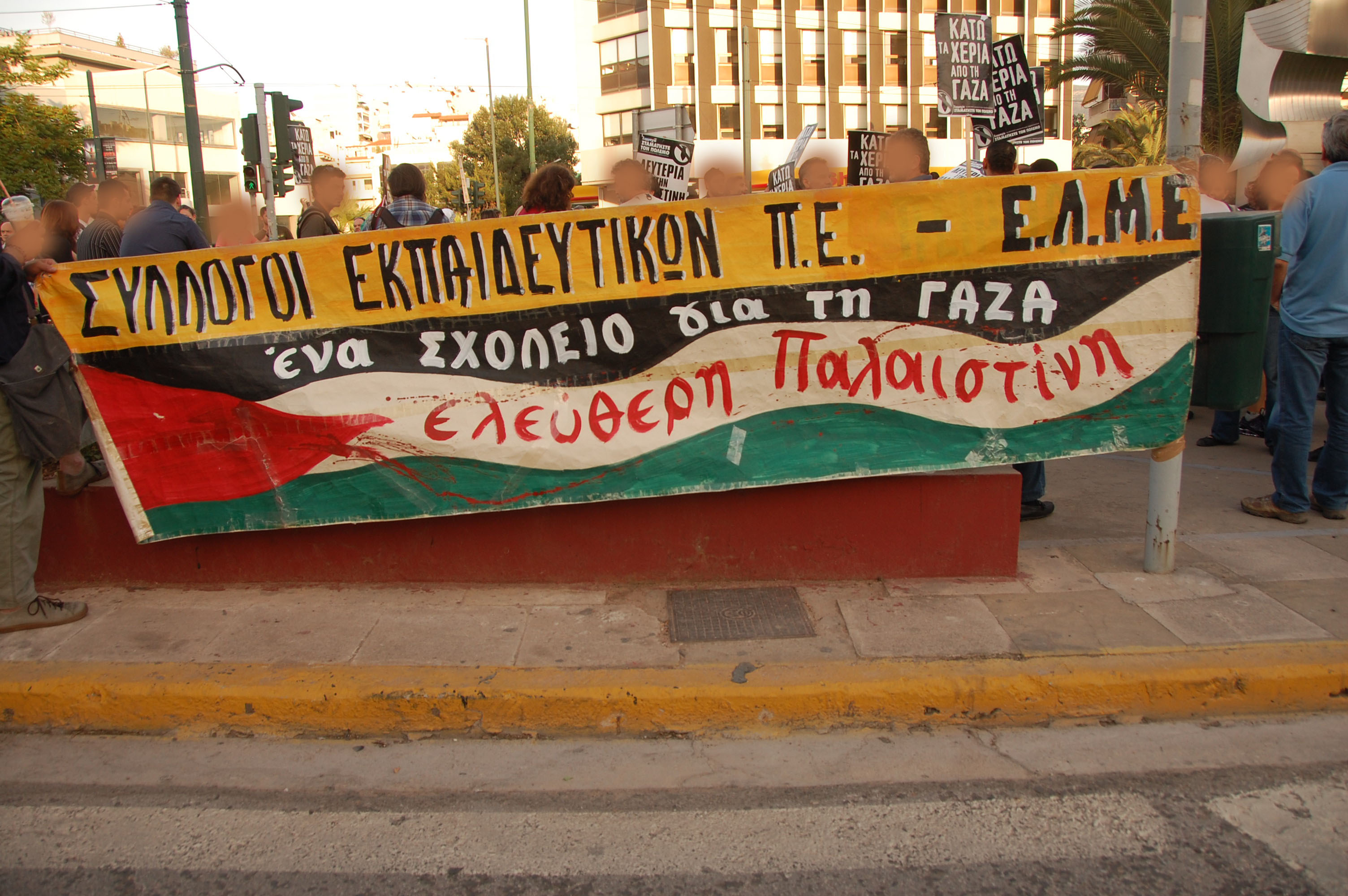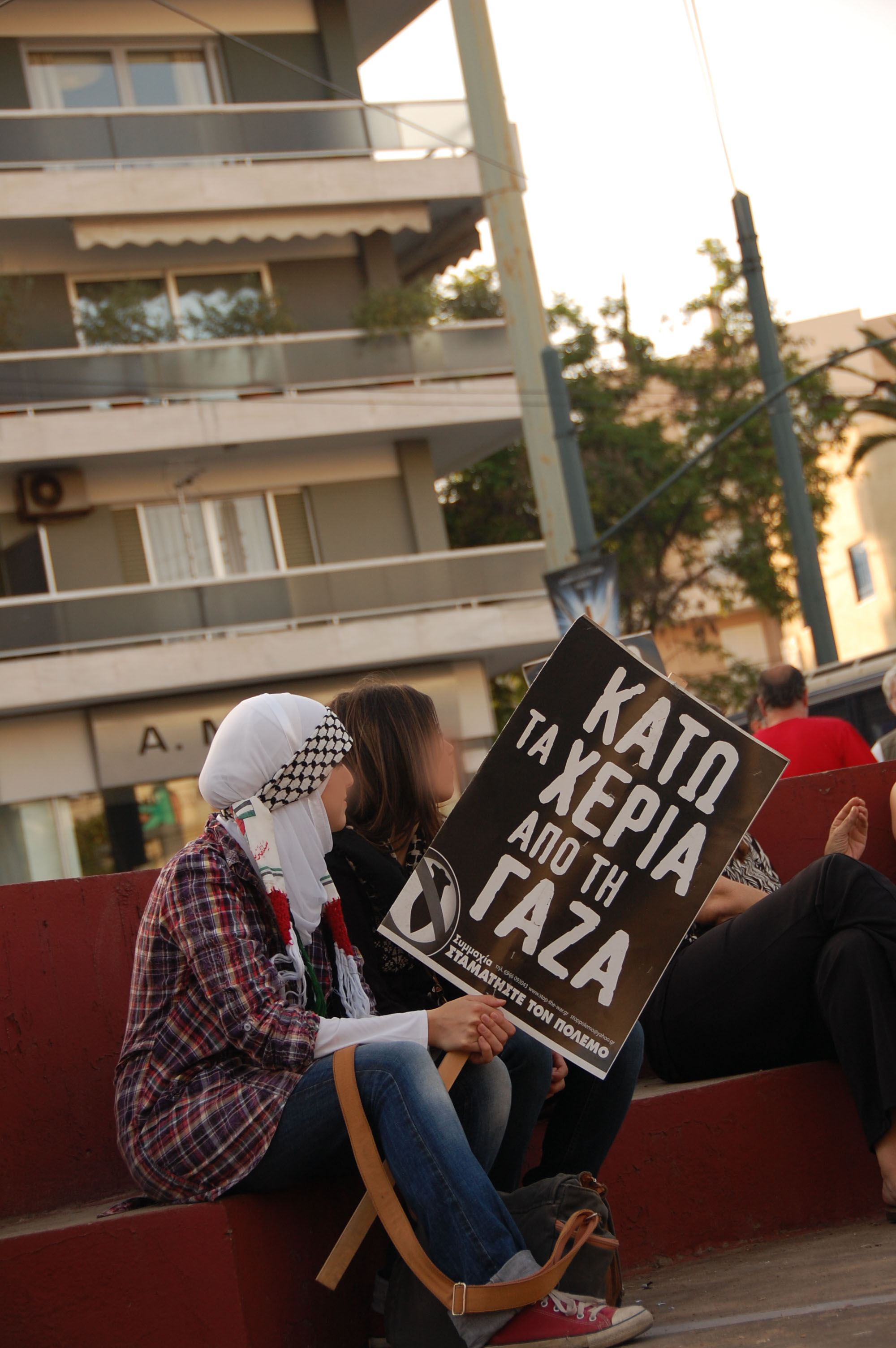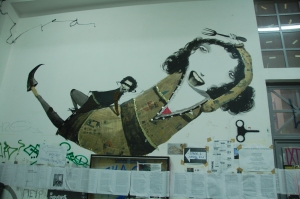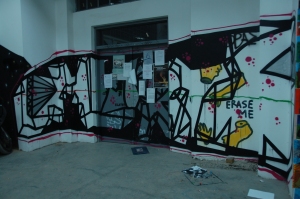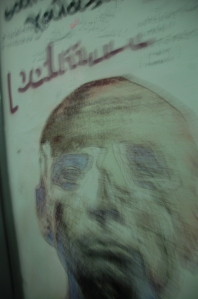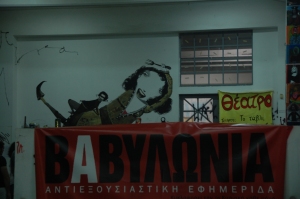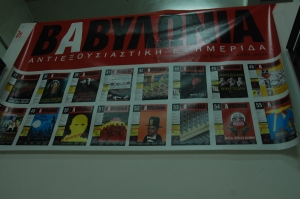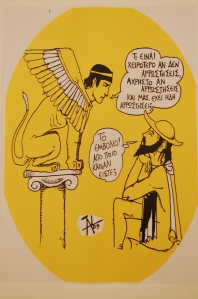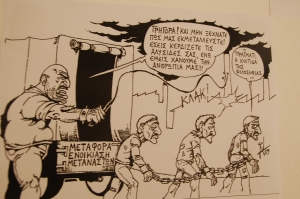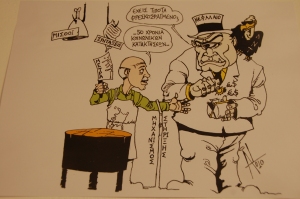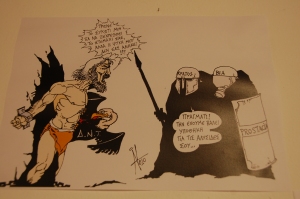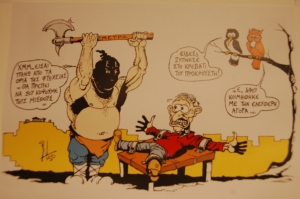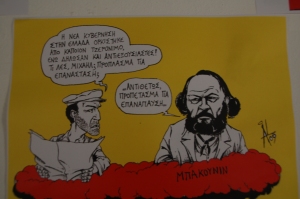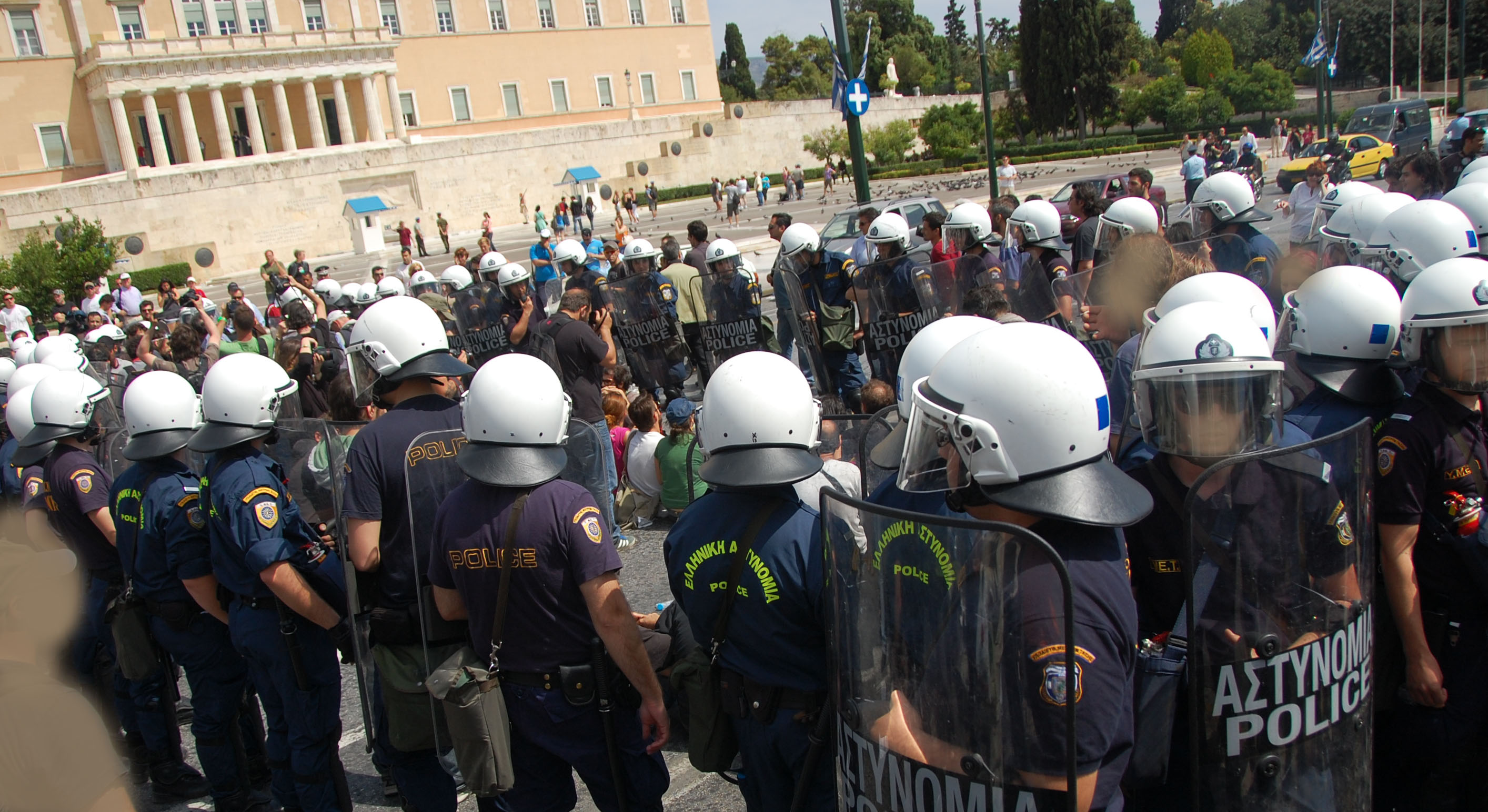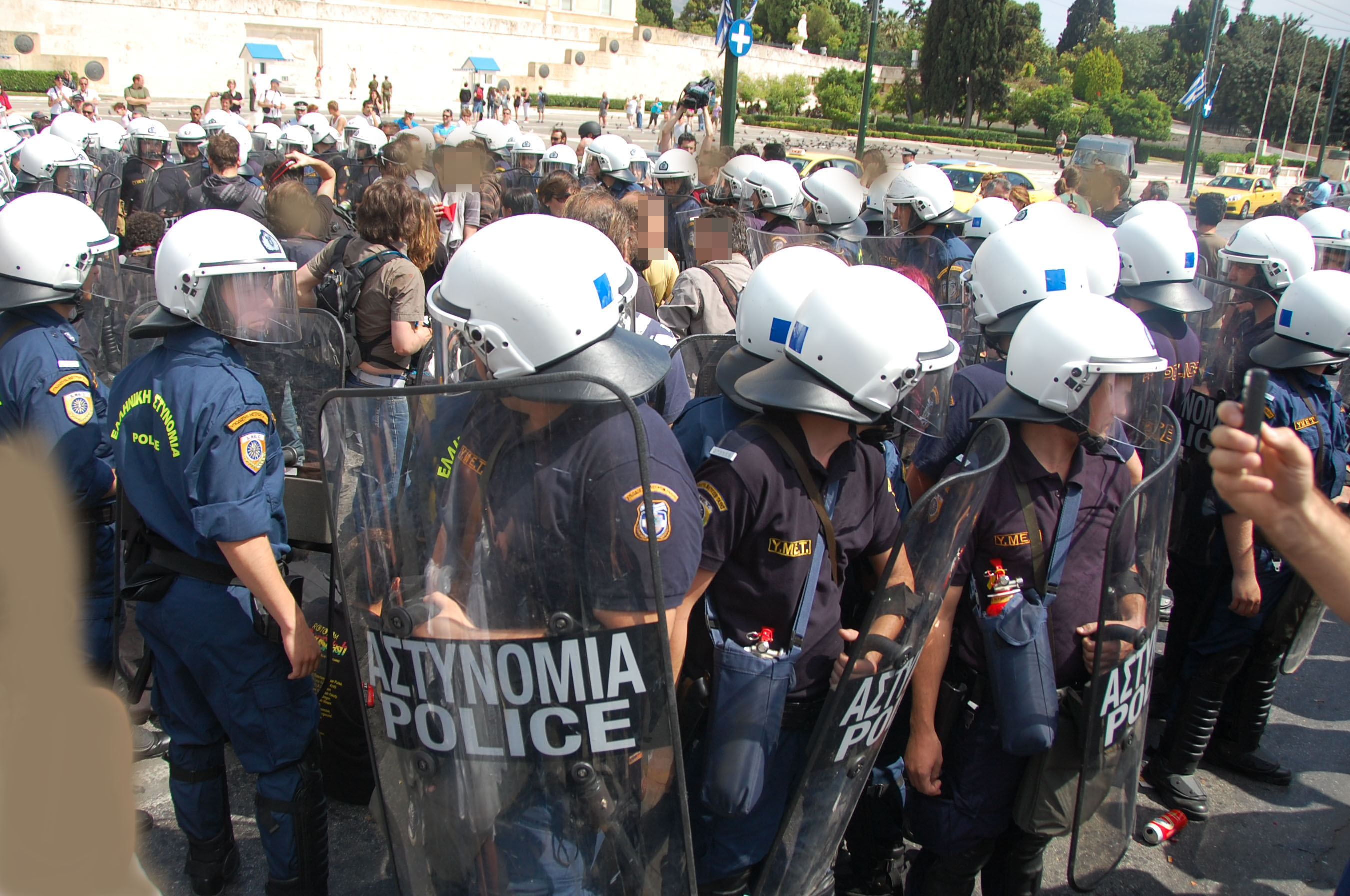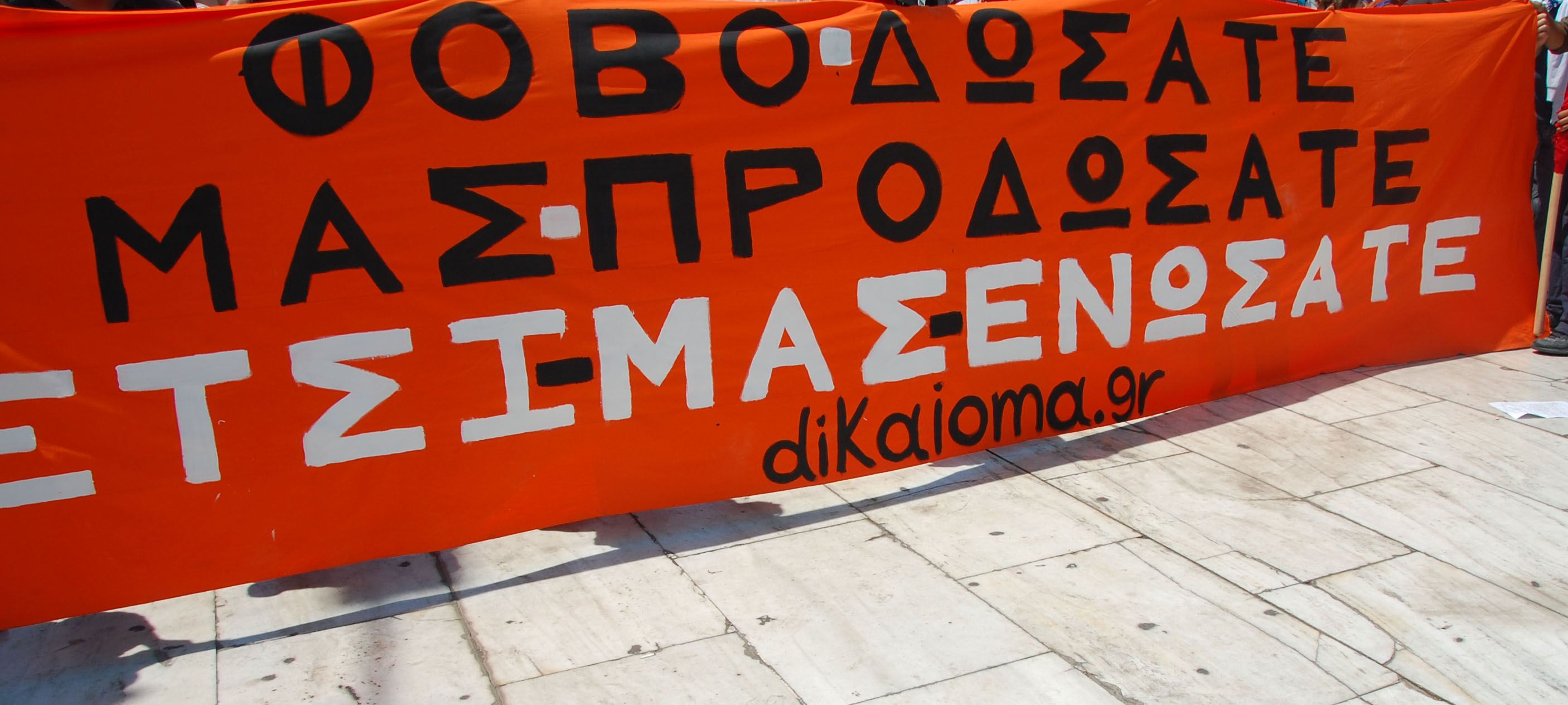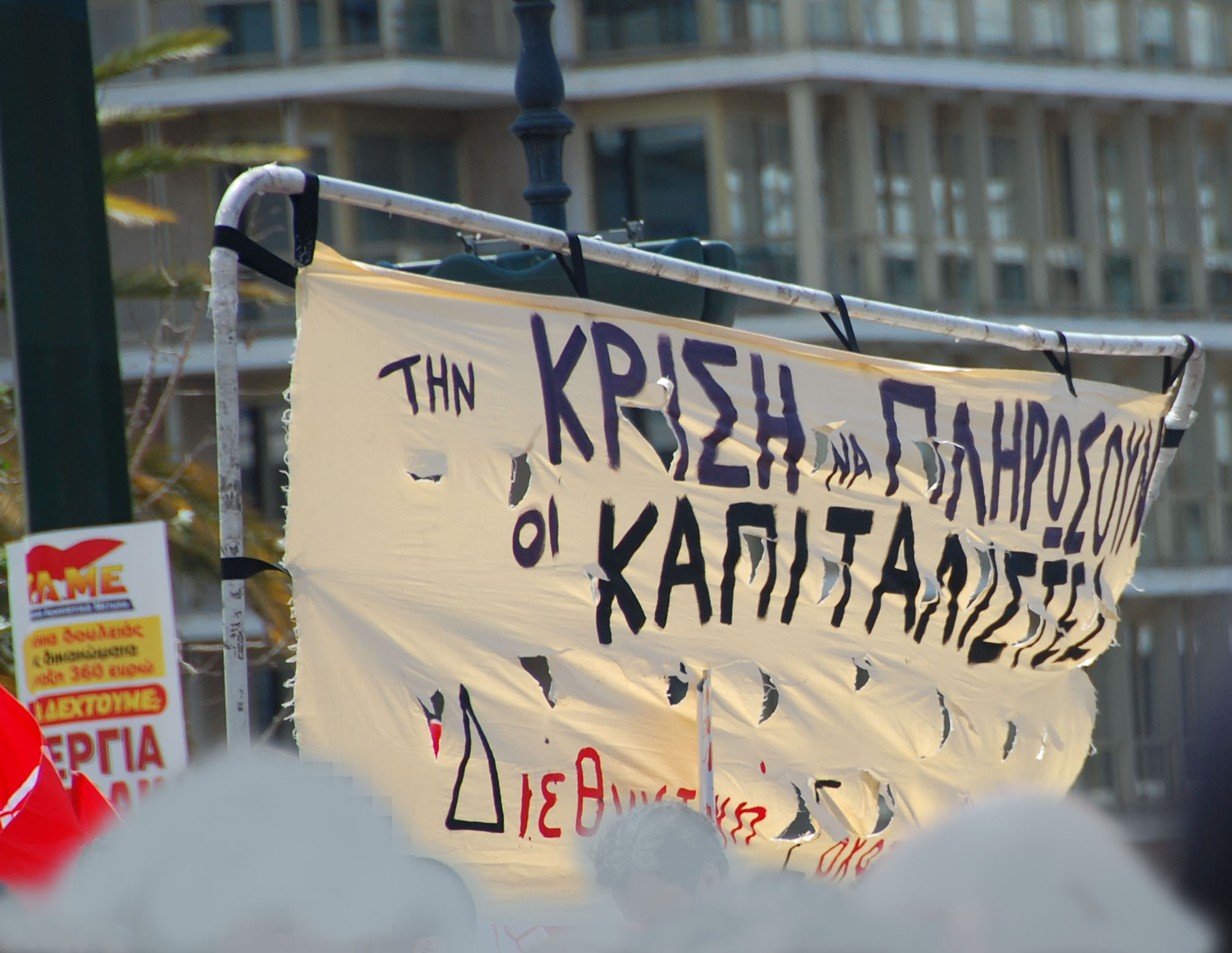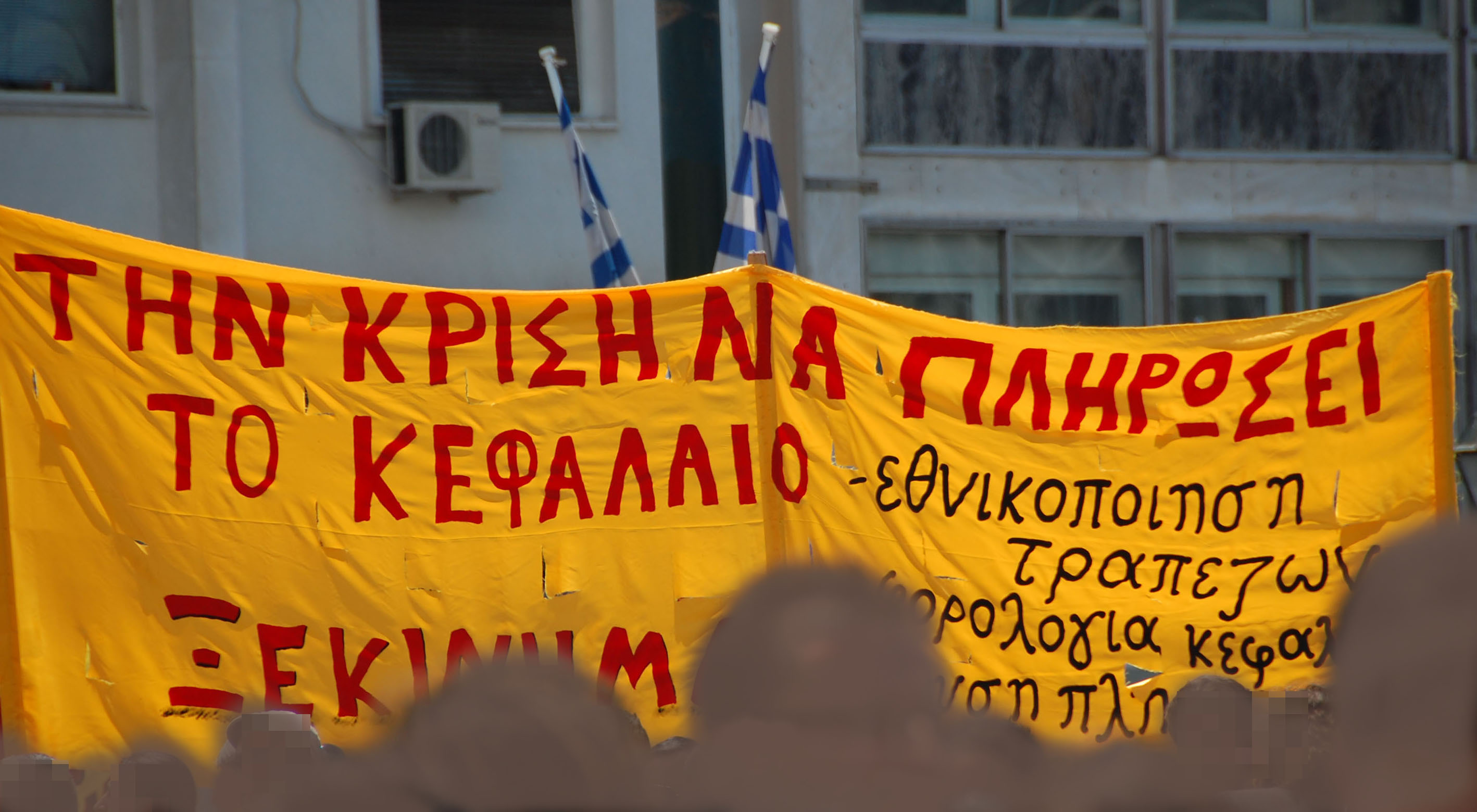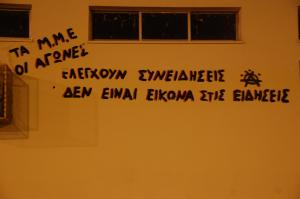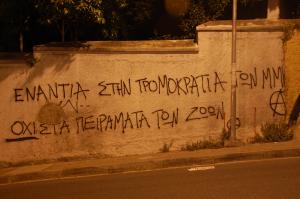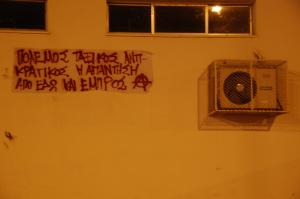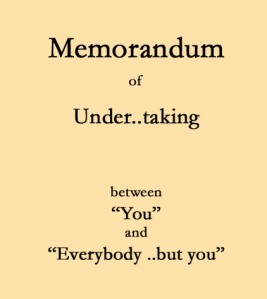για ρεύματα και τάσεις
Περνάει μια όμορφη και λένε: κοίτα την καριόλα…

Η αδιάλειπτη επαφή με την κοινωνικο-πολιτική πραγματικότητα –που είναι πάντα σκληρή- κάνει μερικές φορές τους ανθρώπους περισσότερο πεζούς από ό,τι θα έπρεπε και λιγότερο υπερβατικούς… ειδικά όσοι ονειρεύονται άλλους κόσμους, θα έπρεπε να «εκπαιδεύουν» τη φαντασία τους στην υπέρβαση, στο υπερβατικό. Κι ο καλύτερος τρόπος για να γίνει αυτό δεν είναι άλλος παρά μέσα από την τέχνη.
Επειδή τις προηγούμενες μέρες συζητήθηκε πολύ το θέμα της μνήμης της λήθης κτλ θυμήθηκα ένα κινηματογραφικό αφιέρωμα που είχε γίνει κάποτε με τίτλο «Το Ανοίκειο στον Κινηματογράφο»
Αντιγράφοντας από τη σελίδα του διοργανωτή του αφιερώματος…

Η έννοια του ανοίκειου (uncanny) την οποία διατύπωσε ο Φρόιντ αναφέρεται στην περίεργη ανησυχία που μπορεί να δημιουργήσει στον άνθρωπο κάτι που μέχρι πρότινος του φαινόταν γνωστό και οικείο και συνδέεται άμεσα με το φόβο προς το άγνωστο – είτε πρόκειται για κατάσταση, είτε για «τέρας», για σκοτεινό δωμάτιο, για άνθρωπο. Ο Φρόιντ στο κείμενο “Das Unheimliche” (To Aνοίκειο) που έγραψε το 1919 και αποτελεί κείμενο αναφοράς για όλες τις κατοπινές προσεγγίσεις, ερμηνεύει την οικεία ανησυχία που μας προκαλεί η επαφή με το Ανοίκειο, σαν αποτέλεσμα της επιστροφής του Οιδιπόδειου άγχους, ευνουχισμού που έχει απωθηθεί στο Ασυνείδητο όλων και επανέρχεται κάτω από νέες συνθήκες σαν κάτι ξένο, εξωτερικό. H σύγχρονη ψυχανάλυση συνδέει την αίσθηση του Ανοίκειου με την περιοχή εκείνη του μη απωθημένου ασυνείδητου, όπου δεν υπάρχει αναπαράσταση, που μας τρομάζει, αλλά ταυτόχρονα αποτελεί την πηγή της δημιουργικότητάς μας.
Μία από τις ταινίες του αφιερώματος ήταν το Solaris του Αντρέι Ταρκόφσκι…
Solaris ονομάζεται ένας πλανήτης όπου τα αγαπημένα μας χαμένα πρόσωπα επανέρχονται στη ζωή, όχι όμως όπως θα θέλαμε…
Πατώντας να παίξει το πρώτο βίντεο, μόλις τελειώσει ξεκινάει αυτόματα το επόμενο χωρίς να χρειάζεται να κάνετε τίποτα…
Άλλη μια υπερβατική ταινία –γνωστή και μη εξαιρετέα- είναι το Donnie Darko!
Επίσης ενδιαφέρουσα είναι και μια ιαπωνική του Hirokazu Kore-eda, After life. Όταν πεθαίνουν οι άνθρωποι, κάνουν μια ενδιάμεση στάση όπου μαζί με μια ομάδα συμβούλων –νεκροί κι αυτοί- επιλέγουν μία και μοναδική ανάμνηση την οποία θα πάρουν μαζί τους στην αιωνιότητα. Η μνήμη τους θα σβηστεί και το μόνο που θα θυμούνται θα είναι αυτή η ανάμνηση την οποία με τη βοήθεια των συμβούλων αναπαράγουν σε αυτόν τον ενδιάμεσο σταθμό για να την καταγράψουν στον εγκεφαλό τους… Αυτή προαναγγέλλεται απλώς… δεν την έχω βρει ακόμα…
Και μιας και το thread έχει μπλέξει, τέχνη, ψυχανάλυση, μνήμη, λήθη, αναμνήσεις κτλ, επιτρέψτε μου να μοιραστώ μαζί σας το Ημερολόγιο και τις φωτογραφίες από το Ταξίδι στη Ρωσία στα 1962 ενός ποιητή-ψυχαναλυτή-φωτογράφου, του Ανδρέα Εμπειρίκου…
Το βρίσκετε εδώ…
Και μετά το ταξίδι στη Ρωσία και τις φωτογραφίες του Εμπειρίκου, μερικές φωτογραφίες από το Ανατολικό Μέτωπο…
Και για το τέλος ένα απόσπασμα από το βιβλίο -μιας και δεν το έχω βρει σε ηλεκτρονική μορφή- Conspiracy of silence του Alex Weissberg. Ο Weissberg ήταν Αυστριακός φυσικός, εβραϊκής καταγωγής και κομμουνιστής, ο οποίος το 1931 πήγε στη Ρωσία για να εργαστεί ως φυσικός. Έξι χρόνια μετά συλλαμβάνεται και περνά 3 χρόνια στη φυλακή πριν τον παραδώσουν οι Σοβιετικοί στη Γκεστάπο. Οι αναμνήσεις του έγιναν βιβλίο, από το οποίο είναι το παρακάτω απόσπασμα – δεν επιχείρησα μετάφραση για να μην μακελέψω το κείμενο, το πρωτότυπο νομίζω είναι στα γερμανικά.
This account is set in Kharkov prison Kholodnaya Gora, in June 1938. The Brikhalovka is the transit cell for prisoners being taken to interrogation (and hence source of information). The ‘conveyor’ consisted of threats and abuse, sleep deprivation and being forced to maintain a single position.]
Prisoners who came back from the Brikhalovka told us a fantastic story about an anarchist named Eisenberg. The man hadn’t carried on any counter-revolutionary or anarchist activity, of course, but he had openly clung to his old ideas. He was a Jewish tailor, and when still an apprentice he had accepted the ideas of Kropotkin and Bakunin. He upheld them now with Talmudic obstinacy. They described him to us. He was a small, wiry man with burning eyes, reminiscent of an Indian fakir. There wasn’t a scrap of fat and very little lean on his body, but he was a powerful little fellow. His muscles were small and hard, but very strong. He was fifty-five but every day he did his physical exercises with great conscientiousness.
‘So you’re an anarchist, Eisenberg?’ said the examiner at their first interview.
‘That’s right, Citizen Examiner.’
The examiner was surprised. Although they all confessed to their crimes in the end they usually made some show of protesting their innocence at first.
‘You’re very wise to confess at once without making any trouble. That means you’ll get a lighter sentence. Who recruited you?’
‘Prince Peter Kropotkin, Citizen Examiner.’
‘Don’t make jokes here, man. This is a very serious matter. Who recruited you? Who brought you into the organization?’
‘ I am an individual anarchist, Citizen Examiner.’
‘Maybe you are, but I want to know all about your counter-revolutionary organization.’
‘Citizen Examiner, you seem to be new, otherwise you’d know that individual anarchists haven’t an organization. We don’t believe in it. That’s our whole point. It’s in our programme. We form a community of like-minded individuals. No one is subordinate to anyone else.’
‘Go and … your grandmother with your community of like-minded individuals,’ said the examiner irritably. ‘If you don’t tell me all about your organization at once I’ll break every bone in your body, you counter-revolutionary son of a bitch.’
Eisenberg rose and spoke slowly and solemnly:
‘Citizen Examiner, you have insulted me. For that reason I shall answer no more of your questions.’
The Citizen Examiner shrieked and raved. He punched Eisenberg in the face. He made him put his hands above his head and stand with his face to the wall, but it was no good. Not a word could he get out of his prisoner. Finally he began to temporize.
‘Eisenberg, now you’re not going to sabotage the examination, are you? That would be an anti-Soviet demonstration, and it would end very badly for you. Now be reasonable.’
Eisenberg made no answer.
‘Eisenberg, you don’t want me to call for assistance, do you? They’d beat you up so that your own mother wouldn’t know you.’ Eisenberg turned round.
‘Citizen Examiner, you may beat me up, as you say. That’s your trade. You’re a policeman, and I’m a prisoner. I was seven years in the Katorga [hard labour] under the Tsar. They beat me up too, but they didn’t insult me. I’m a human being just as you are, and I have a soul just as you have. You have no right to humiliate my personality.’
The examiner kept him standing with his face to the wall for six hours. Then Eisenberg said quietly:
‘Citizen Examiner, I’m tired now. With your permission I’ll sit down.’
And without waiting for permission he sat down on the floor. The examiner jumped up and began to punch him.
‘What! You son of a bitch, you think you can resist the Soviet power! If you don’t get up at once we’ll beat you to a jelly.’
Eisenberg took no notice and remained sitting down. The examiner then fetched two of his men. Eisenberg still made not the slightest attempt to resist. They belaboured him for an hour and it seemed to have no effect on him at all. The other prisoners who came from the Brikhalovka told strange stories about him. They declared that he was able to make himself impervious to all feeling. Finally the G.P.U. strong-arm men noticed that his eyes were quite fixed and expressionless. This we were told by one of the secretaries of the G.P.U. who was in the room at the time and who was later himself arrested and put into our cell. Then they called a doctor, who examined the prisoner and reported that his heart was perfectly sound and functioning normally but that his general physical nature was abnormal. As he really seemed to be quite impervious to pain they gave up beating him and organized a ‘Conveyor.’
This emaciated, under-sized Jewish tailor set up an all-time record in the history of the G.P.U. He survived an almost uninterrupted ‘Conveyor’ lasting for thirty-one days and thirty-one nights. I cannot understand how that was physically possible, but since then I have been less sceptical of the stories I have heard about the performances of Indian fakirs.
With deep excitement and interest the whole Brikhalovka and the whole of Kholodnaya Gora followed the battle between the all-powerful G.P.U. and this one man. The ‘Conveyor’ was interrupted twice in the twenty-four hours and Eisenberg was sent below to a cell. There he would throw off his clothes and lie down flat on the floor whilst two of his fellow prisoners rubbed him with wet towels, massaged him and stuck a cigarette in his mouth. Then he ate his meal and slept for ten minutes. After that he was called up again.
His examiner was in despair.
‘But Eisenberg,’ he pleaded, ‘why don’t you be sensible? Look, you admit the chief thing, which is being a counter-revolutionary anarchist, so why hold out so obstinately over this question of your organization? Now tell me who your fellow conspirators were, there’s a good fellow.’
‘I am an anarchist, and I always have been, but I am not a counter-revolutionary, and I never have been. I have fought and worked for the Revolution all my life. But I am an enemy of the State. I am an enemy of all States, including your State. The State and its repressive system is the cause of all social evil. When the State disappears the people will be able to breathe freely for the first time in history.’
‘Don’t be silly, Eisenberg. You can’t get on without a State. That’s logical. What would you do with criminals, for instance?’
‘Crime will disappear with the State.’
They could do nothing with him. As I see things his outlook was wrong, but he clung to it as the most important thing in life. He was the only one amongst the 12,000 of us who fought for an idea. The rest of us were just unfortunate victims of oppression. He was the one fighter against oppression.
‘Some day truth will triumph,’ he would say again and again to his cell mates. ‘Our sufferings will not be in vain.’
It was he who won the unequal struggle. He survived the record ‘Conveyor’ without confessing. After thirty-one days and nights of it he had them beaten. They broke off the examination and sent him to Moscow-it was said to a lunatic asylum.
[Note on names]
Sometimes I have been obliged to change not only names but also accompanying circumstances in order to shield people who are still within reach of the G.P.U., though I am well aware how unreliable such precautions are. World public opinion is one of the sore points of the regime, and in this respect the G.P.U., whose arm is long, spares no efforts. For this reason I have even felt myself obliged to leave out some things altogether. But although I may have altered names and places in some instances, the essentials have remained. After all, it is of no consequence that a man I call Lebedev was really Lebedinsky, that he came from Stalingrad and not from Sverdlovsk, and that he was really only thirty and not forty.
A very great deal of space is devoted to my talks with the examiners and with my fellow prisoners. In most cases I have used the direct form of speech. It may be objected that it is impossible to reconstruct a conversation accurately after the passage of ten years. But the same is true of a conversation that took place only ten days before. Thus the form of direct speech I have chosen is a matter of convenience only and I make no claim that it conveys absolute verbal accuracy.
As far as the statements of my fellow prisoners reproduced here are concerned, I was naturally not always in a position to check their accuracy. However, the atmosphere of a prison quickly teaches a man to judge the character and credibility of a fellow prisoner. Most of the experiences were typical and they were materially confirmed by constant repetition.
When all these reservations have been made I can claim with confidence that the future will confirm the objectivity of my report and the accuracy of my interpretation of what happened.
In any case, I propose to describe what happened accurately, without exaggeration and without minimization. (page 15)
from Conspiracy of Silence by Alex Weissberg (Hamish Hamilton, 1952)
ΥΓ: στην πορεία θα προστεθούν κι άλλες ταινίες κι άλλες τέχνες. Όσοι θέλουν να συνδράμουν…
Short link: https://asylo.squat.gr/?p=1180





